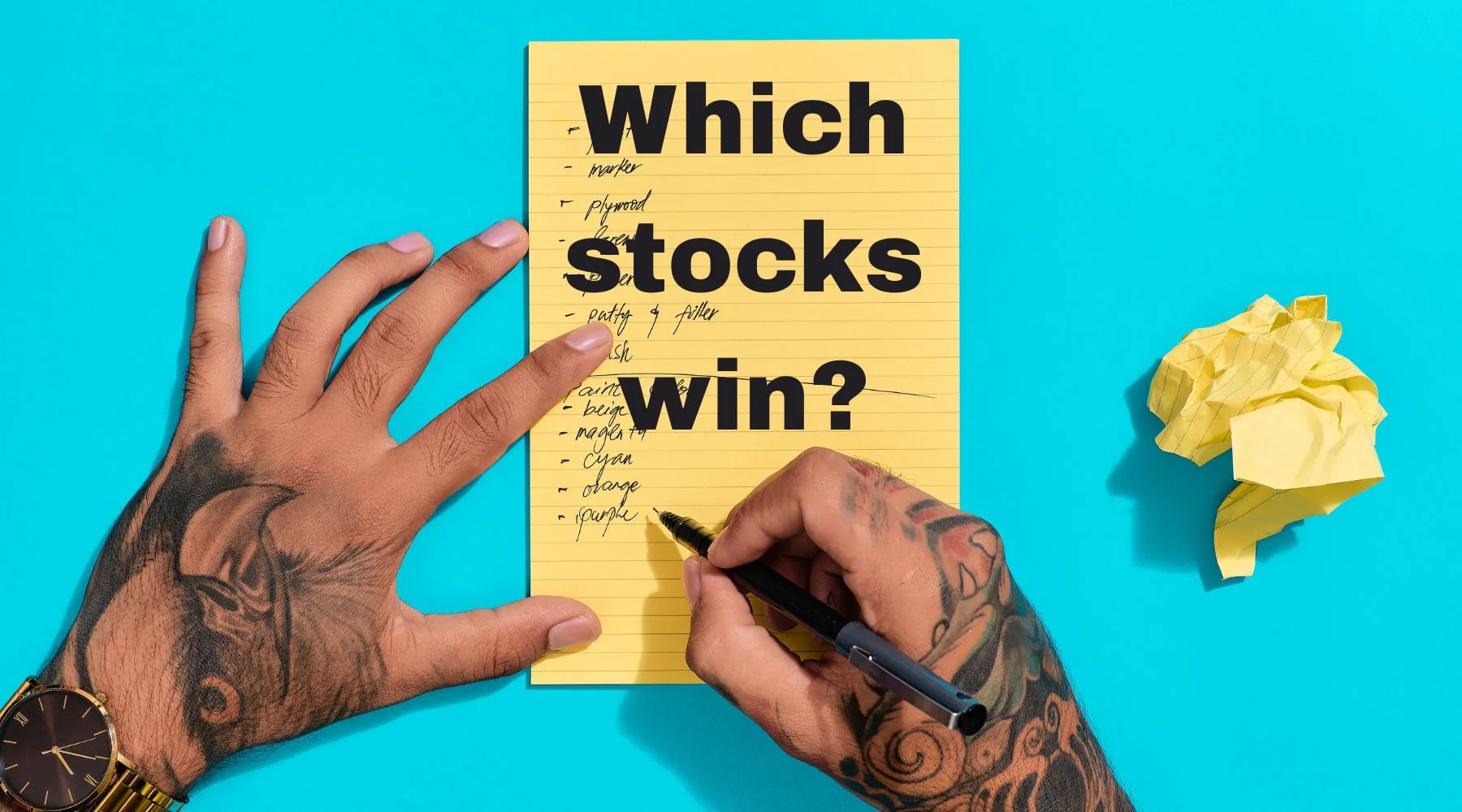Which stocks benefit from Trump’s tariffs?

Share markets always fall when there's a trade war, so can there be any winners from Trump's sweeping tariffs?
Regardless of what's happening in the global economy, there are always stock market winners and losers, right?
It's a reasonable assumption, but according to one analyst that might not actually be the case this time.
While US industry stocks might seem like the obvious choice for the winners side, Moomoo market strategist Michael McCarthy said it's become clear they're unlikely to outperform the resulting global slowdown.
The markets now appear to have come to the conclusion that there are no winners in a trade war - Michael McCarthy, Moomoo
Amid fears of a global recession, uncertainty over what Trump will do next and how central banks will react, finding stocks that might actually benefit are especially difficult to identify, according to McCarthy.
Global stock markets plunged in early April after President Donald Trump announced larger than expected tariffs expanding across all trading partners.
The US S&P 500 index fell more than 12% following the announcement, while Australia's S&P/ASX 200 index dropped over 7%.
Complicating matters further, stocks performed a dramatic 180 after Trump paused the highest tariffs for a period of 90 days.
So, if there are no winners from a trade war, where should you be putting your money?
Exchange traded funds
While it's hard to pick stocks when there's so much volatility, McCarthy said exchange traded funds (ETFs) can be one way to play to the market.
ETFs are investment funds that hold multiple stocks, typically entire markets, such as the S&P 500 or S&P/ASX 200 indices.
"We're certainly seeing plenty of people who are saying this is a dip buying opportunity," said McCarthy.
Inverse ETFs, listed funds that move in the opposite direction as the market, have also been a popular choice so far this year.
Essentially, when the market is falling, these ETFs are delivering equal (or magnified) returns.
Some inverse ETFs include:
- BetaShares U.S. Equities Strong Bear Hedge Fund (BBUS)
- BetaShares Australian Equities Strong Bear Hedge Fund (BBOZ)
- BetaShares Australian Equities Bear Hedge Fund (BEAR)
- Global X Ultra Short Nasdaq100 Complex ETF (SNAS)
But while inverse ETFs might seem like an obvious choice, McCarthy warns investors should understand the risks.
Many inverse ETFs, such as BBUS and BBOZ, use leverage to inflate returns, but this means losses are also inflated.
"When it goes wrong, it can go horribly wrong," said McCarthy.
Defensive stocks (the right ones)
When there's a recession brewing, investors tend to shift toward defensive stocks, rather than growth stocks.
Defensive stocks are companies that normally remain stable even when there's an economic slowdown. They include companies that provide products we will always need, such as consumer staples, like supermarkets, healthcare and pharmaceuticals.
However McCarthy warns that not all "defensive" stocks are good defensive plays.
While both Coles (ASX:COL) and Woolworths (ASX:WOW) are outperforming so far this year, their stock prices relative to earnings (P/E ratio) suggest they're currently overvalued with a P/E ratio of.
"Buying those at their peak prices just because they're groceries is not a defensive move when they're trading on multiples like that," said McCarthy.
"It's important to understand defensiveness is also a matter of the share price...If the shares themselves are in expensive territory, it is not a defensive investment."
For defensive supermarket stocks, McCarthy points to MetCash (ASX: MTS), which is trading at a more reasonable valuation (P/E ratio of 13) relative to WOW or COL (P/E of 24-25).
Gold stocks are bouncing — but be wary
If there's one big winner to come out of all this uncertainty in the market, it's gold.
The price of gold has jumped over 20% so far in 2025, continuing to hit new record highs.
Aside from buying physical metal, one way to invest in rising gold prices is to buy gold mining company stocks.
But like supermarket stocks, McCarthy warns that many gold miners are trading at high price to earnings, suggesting we might be nearing a peak.
"That's the first lesson here is that investment plans have to take into account that share markets regularly have pullbacks and corrections."
As to how to best play the current market, his answer is simply: "stay diversified."
"But it would have been a lot better if you diversified ahead of this event, than trying to do it now."
Sources
Ask a question
